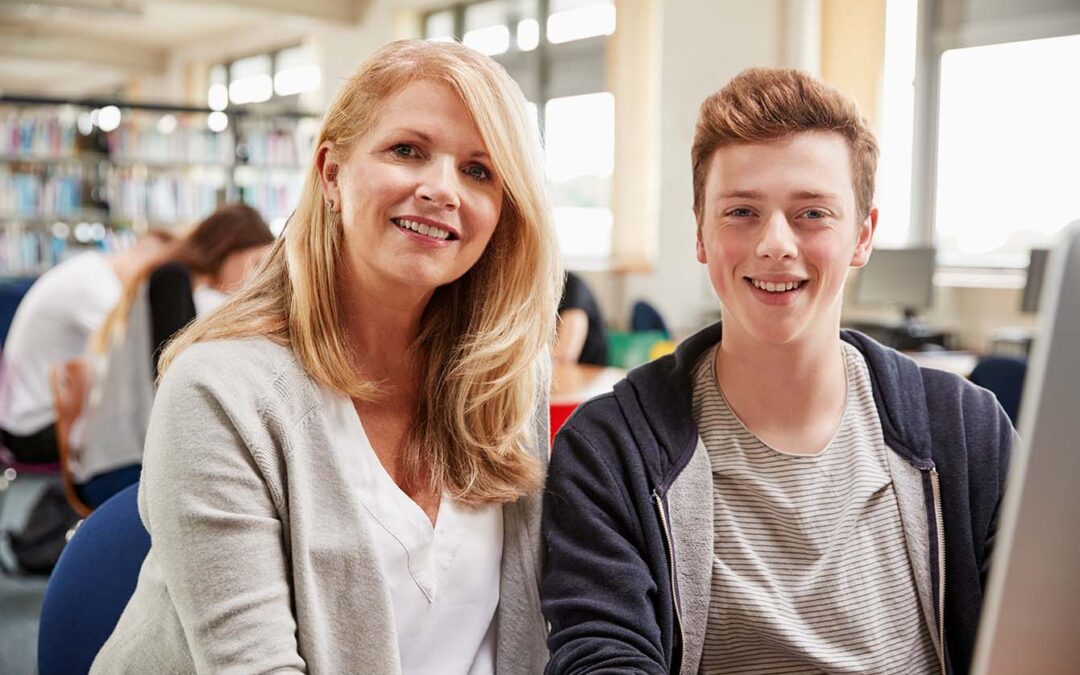Your teen used to be on top of their school work but lately things have slipped. Now you’re staring at missing assignments, low grades, and a stressed out student. Sound Familiar? This is a common case for families all across the globe. Whether your student is in middle or high school, every student has fallen behind at some point. It can be hard as a parent seeing this happen. In this article I want to discuss 5 steps you can take to help your teen catch up without stifling their autonomy, independence, or executive functioning skills.
Steps to Help Your Teen Catch Up:
1. Understand the Root Cause
The cause is different for every student but it’s essential to understand why this is happening. Is your student struggling to manage their time effectively? Are they feeling unmotivated to complete assignments? Are they refusing to go to school? Exploring the cause by talking to your student is a great way to understand their perspective and feelings on why things are happening the way they are. It’s important to also discuss with your teen’s teachers and counselors. While your student’s perspective is important, it’s only one side of the story! Talking with the teachers can also offer insight to why your teen is struggling.
2. Create a Realistic Plan
Once you and your student have a good idea of the root cause, it’s time to begin crafting a plan. It’s important for this plan to be realistic, and what I mean by this is to keep the goals obtainable. It can take a lot of time to reverse bad habits, so having both a list of short-term and long-term goals is ideal. The short-term goals help maintain motivation while the long-term goals serve as milestones for the student’s journey. Keep a planner or calendar that’s dedicated to this plan. Make sure dates are marked for each goal and the student has an idea on how to achieve these goals. You don’t want to do everything for your student! It’s important to instill and foster independence in your child so that they feel motivated to achieve these goals on their own. Play a supportive role for your teen and make sure you’re available to help if they ask for it.
3. Communicate with Teachers and School Counselors
Academic support resources are present at every school and they can come in handy with putting your plan into action. Holding your student accountable and making sure your teen’s teachers know is a great idea! You can schedule meetings with teachers to discuss with them your plan and advice on achieving your teen’s goals. On top of this, your teen’s teachers may have input to assist with the development of the plan too! At the end of the day, we’re all on the same side! We all want to see your teen succeed! Teachers can particularly help in the accountability department. Having a teacher hold your student accountable in the classroom can be a great way to make sure your student is working towards their goals instead of falling into a deeper hole!
Other academic support may be present at your teen’s school in the form of counseling. Counselors are an option for teens who are having difficulty identifying long term goals for themselves. Counselors may also have additional recommendations based on your particular student and their learning preferences. They may be able to identify things like: the need for accommodations and more.
4. Establish a Supportive Routine
Having a supportive routine for your student can go a long way in helping them get back on track. The key is to remain in a supportive role as opposed to a direct intervener. What I mean by this is that you don’t want to give answers for your student. This can actually do more harm then good because they’ll begin to depend on you to remind them of due dates, etc. Remaining in a supportive role means you prioritize helping your student emotionally. If they’re having difficulty with an assignment ask them questions like: “What chapter in the textbook is this referencing?” “Did you write about this in your notes?”. Another great way to assist in building a supportive routine is creating a distraction-free study environment for your student. Many students choose to study in front of the tv which actually hinders them! Framery.com describes a distraction-free study environment as the following:
…a good study space lacks distracting environmental factors, such as alarms, notifications, or loud conversations. Although some enjoy working or pulling off a study session in a busy coffee shop, it is not necessarily the most productive study space.
You’ll want to ensure their study space has good organization, lighting, and is removed from any loud or visually distracting things.
5. Consider Extra Help
Extra help is always an option! Many students find success by having outside counseling or tutors to assist with them getting back on track. The nice thing about these is that it gives you another expert to talk with about your teen’s progress. In addition, they may have another approach to getting your student back on track that your teen’s teachers haven’t discussed yet. I encourage ‘shopping around’ and changing tutors or counselors if the current one isn’t working either! Every tutor has a different teaching style and will understand if your teen needs to switch and find a different tutor.
Support is Right Here!
Seeing your teen fall behind in their academics is never easy, but with these steps you can assist your teen in getting back on track for success! I highly recommend checking out our full list of tutors and counselors if you’re interested in getting some outside help. All of our tutors are professional teachers at our one-on-one private school: The Tenney School, which means your getting certified teachers as your teen’s tutors! Schedule your first session today and see how our tutors can help your teen!

